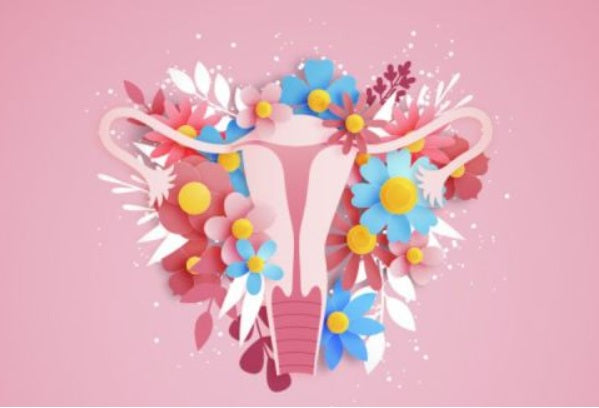

5 Ways To Support Your Menstrual Health in 2025
2025 is upon us, and as new year resolutions and intentions are bubbling around at this time, have you thought about how to incorporate your menstrual health into the mix?
One of the wonderful things about supporting menstrual health is that it can often be done mostly for free. Yes there are wonderful tools and modalities that can provide education, support, and healing, but the foundations for keeping our periods and fertility thriving are the things you do day in, day out, and some are absolutely free.
1. Prioritise sleep – Make 2025 the year you say goodbye to all nighters and hello to grandma energy, in bed by 9pm. Whilst you may not need to entirely embrace the grandma life, going to bed earlier and switching off from screens earlier is only going to do your hormones, your periods and your fertility, good. Nothing bad comes from going to bed earlier, promise. Because remember, going to sleep at 12:00AM and waking up and 8:00AM, is not the same thing as going to bed at 10:00PM and waking up at 6:00AM!
Getting in more hours of sleep before the clock strikes 12am supports your melatonin, soothes your HPO axis and supports your circadian rhythm, essential factors in maintaining healthy, flourishing menstrual health.
2. Eat breakfast – Intermittent fasters, I know, you’re gasping with horror, and let me say, if it’s working for you, if you’re having predictable, ovulatory, pain free, symptom free periods and no fertility challenges, why stop a good thing? However, if you are regularly skipping breakfast either intentionally doing intermittent fasting or not intentionally due to being time poor in the morning AND you’re experiencing menstrual health and/or fertility challenges, think about incorporating breakfast back into your routine. Our warped culture has sneakily convinced many of us that being well fed is a bad thing.
Our bodies require nourishment. Our nervous systems require nourishment. Our blood sugar needs to be stable to maintain the symphony that is our menstrual cycles and fertility. Eat well and eat regularly.
3. Support nervous system regulation – Perhaps the most important factor influencing our menstrual health, the health of our nervous systems! Our brain and nervous system are the control centres for our menstrual cycles. A dysregulated nervous system will almost always equal a dysregulated menstrual cycle and/or fertility.
How can you take things off your plate to unburden your nervous system? What can you delegate? What can you simply let go of/say no to? 2025 might be the perfect year for you to say no to much more of the things you don’t want to do, and yes to a regulated nervous system.
4. Get in the sun – Safe sun exposure is a glowing balm for our menstrual health. Vitamin D is involved in every single process of our menstrual cycles and each stage of fertility and pregnancy. We need vitamin D to thrive! If you’re not sure how your levels are doing, getting your blood levels tested to see where you’re at can be a great tool to know if you’re getting plenty of vit D, or need to up it.
5. Move your body – Did you know that moving your body regularly aids your digestion and absorption of nutrients? If you’re eating nourishing foods, taking herbs and supplements but not exercising, you may be compromising your ability to make the most of the goodness you’re putting into your body.
What else would you add to this list? How are you supporting your body in 2025?
Author
Lauren Curtain
Lauren Curtain is a registered Chinese medicine practitioner, women's health focused acupuncturist and herbalist. She centres her practice around supporting women to navigate their hormones, menstrual cycles and fertility using a combination of education (all the women’s health info you didn't get in high school), acupuncture, herbal medicine, nutrition and lifestyle support. Lauren believes every woman has the right to know how her body works, and what she can do to optimise not only her reproductive health, but whole body health. Lauren has seen firsthand with her patients the dramatic improvements that can be made to reproductive health through simple, inexpensive, non-invasive techniques and firmly believes symptomatic periods and menstrual cycles can be a thing of the past and we can embody a thriving fertile life.
